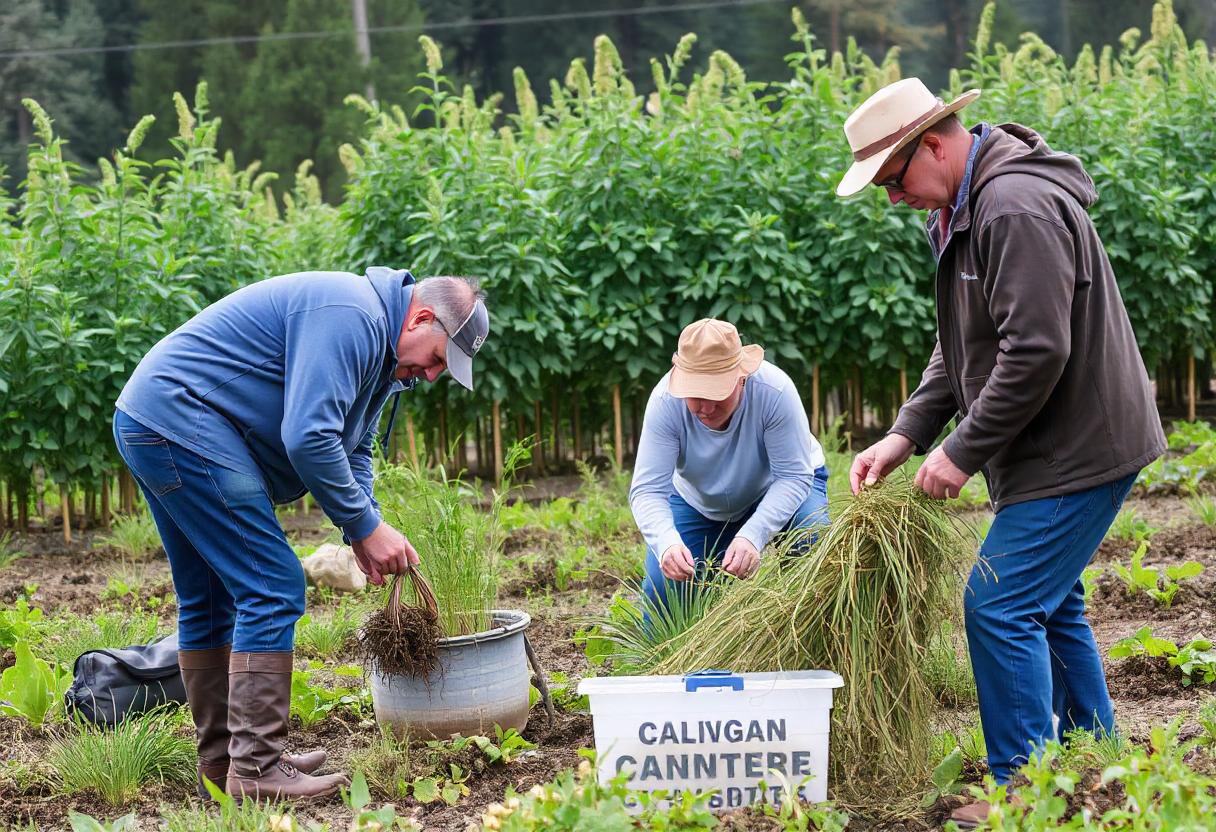
Canada has one of the most robust agricultural industries in the world. The country is known for its vast farmlands, advanced farming techniques, and a strong demand for agricultural labor. Agriculture work in Canada offers numerous opportunities for both domestic workers and foreign laborers, especially through the Temporary Foreign Worker Program (TFWP). With agriculture playing a vital role in the Canadian economy, this sector remains a key employer across different provinces.
Main Agricultural Regions in Canada
Canada’s agricultural landscape is diverse, with various regions specializing in different types of farming. The Prairie Provinces, including Alberta, Manitoba, and Saskatchewan, are famous for grain production, particularly wheat, barley, and canola. Ontario and Quebec lead in fruit, vegetable, and dairy farming, while British Columbia is renowned for its vineyards, orchards, and berry production. Atlantic Canada focuses on fisheries and seafood processing, but also has a thriving dairy and livestock farming industry.
Types of Agriculture Jobs Available
Agriculture jobs in Canada span a wide range of roles, depending on the farm’s size and type of production. Common roles include:
- Farm Laborers: Workers who handle basic tasks such as planting, weeding, harvesting, and maintaining equipment.
- Livestock Workers: Handling animals, managing feeding schedules, and ensuring proper living conditions for cattle, sheep, or poultry.
- Greenhouse Workers: Responsible for growing flowers, vegetables, and plants within controlled environments.
- Equipment Operators: Operating tractors, combines, and other farm machinery to plant and harvest crops.
- Agronomists: Scientists who study the soil and crops to improve farming techniques and yields.
The Temporary Foreign Worker Program (TFWP)
Canada’s Temporary Foreign Worker Program is a key avenue through which foreign workers can enter the country for agriculture work. The program helps fill labor shortages in the agriculture sector, offering both seasonal and year-round positions. Employers are required to provide safe working conditions, housing, and fair wages for these workers. The TFWP has been instrumental in meeting the demands for labor-intensive tasks, particularly in horticulture, fruit picking, and fieldwork.
Wage Expectations for Agriculture Workers
Wages for agriculture workers in Canada vary by region and job type. On average, farm laborers earn between CAD 14 to 20 per hour, while skilled workers like equipment operators and agronomists can earn more. Seasonal workers typically receive pay based on the hours worked or the amount of produce harvested, with some regions offering higher wages due to increased demand for labor. Benefits such as free accommodation and meals are sometimes included in the package.
Working Conditions in Canadian Agriculture
Working in Canada’s agriculture sector can be physically demanding, as many roles involve long hours, especially during peak harvest seasons. Workers often perform tasks outdoors in various weather conditions. Despite the hard work, the agriculture industry is well-regulated, ensuring fair treatment and safety. Employers are expected to adhere to labor laws regarding wages, housing, and working conditions, which helps maintain a safe environment for both domestic and foreign workers.
Pathways to Permanent Residency for Agriculture Workers
For foreign workers, Canada offers pathways to permanent residency through various immigration programs. Those with experience in the agricultural sector may qualify for programs such as the Agri-Food Pilot, which provides a pathway for farm workers, meat processors, and other agricultural roles to transition from temporary to permanent residency. This program is designed to meet the labor needs of the agricultural industry while offering workers a stable future in Canada.
Key Challenges in the Canadian Agriculture Sector
Despite the numerous opportunities in Canada’s agriculture sector, there are challenges. Labor shortages are one of the biggest issues, with many farms struggling to find enough workers, especially during peak seasons. Weather conditions also play a significant role, as droughts, floods, or unexpected frosts can affect crop yields. Additionally, the rising cost of inputs such as seeds, fertilizers, and machinery presents financial challenges for farmers.
Future Outlook for Agriculture Jobs in Canada
The demand for agriculture workers in Canada is expected to remain strong in the coming years. The country’s agricultural industry is constantly evolving, with advancements in technology leading to more efficient farming practices. There is also a growing emphasis on sustainable farming, which may create new opportunities for workers specializing in organic farming or renewable agricultural practices. As Canada continues to expand its agricultural exports, the need for labor in this sector will likely increase.